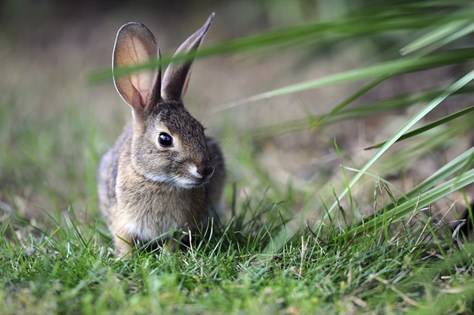Rabbit farming, also known as rabbit husbandry or rabbitry, refers to the practice of raising domestic rabbits for various purposes, including meat, fur, show, or as pets. Rabbit farming is popular in many parts of the world due to the numerous benefits associated with rabbits as livestock. Here's some information about rabbit farming:
Breeds: There are numerous rabbit breeds suitable for farming, each with its specific characteristics. Some popular meat breeds include New Zealand White, California, and Flemish Giant. Angora rabbits are commonly bred for their long, soft fur.
Housing: Rabbits can be housed in various types of structures, including hutches, cages, or colony systems. The housing should provide adequate space for rabbits to move comfortably and protect them from predators and extreme weather conditions.
Feeding: Rabbits are herbivores and require a diet primarily consisting of hay, fresh vegetables, and pellets formulated specifically for rabbits. Providing clean drinking water is essential at all times. The specific nutritional requirements may vary depending on the purpose of farming (meat, fur, or pet rabbits).
Breeding: Breeding rabbits involves selecting healthy, genetically suitable rabbits to produce offspring. Breeding rabbits should be of appropriate age and weight, and proper mating practices should be followed. Gestation typically lasts around 31 days, and a doe (female rabbit) can produce several litters per year.
Health Care: Good hygiene practices, regular health checks, and preventive measures are crucial for maintaining the health of rabbits. Vaccinations, parasite control, and proper sanitation in their living environment are important to prevent diseases.
Marketing and Sales: Depending on the purpose of your rabbit farming, you can sell rabbits for meat, fur, or as pets. Establishing contacts with potential buyers such as local markets, restaurants, furriers, or pet stores can help in marketing your products.
Regulations: It's important to research and comply with local regulations and requirements related to rabbit farming, such as zoning laws, permits, and animal welfare regulations. Some regions may have specific guidelines for commercial rabbit farming.
Sustainability: Rabbit farming is considered relatively sustainable as rabbits are efficient converters of feed to meat. They have a rapid growth rate, reach maturity quickly, and have a high reproductive potential, making them a viable livestock option for small-scale farmers.
Remember to conduct thorough research, seek advice from experienced rabbit farmers, and consider factors like market demand, resources, and local conditions before starting a rabbit farming venture.



No comments yet
Be the first to share your thoughts!